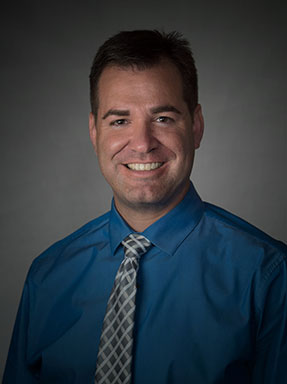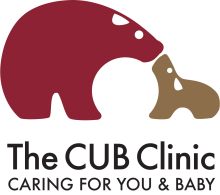University of Denver Launches Colorado’s First Telebehavioral Perinatal Mental Health Service
Program aims to help families living in rural Colorado

It’s a serious challenge facing the state of Colorado — 22 counties do not have a licensed psychologist. Residents living in these rural areas face two options: drive long distances to receive help, or live without receiving care for mental health issues, substance abuse, learning disabilities and various emotional problems.
The University of Denver’s Graduate School of Professional Psychology (GSPP) is working to address this need. Earlier this month, the school launched Parentline Colorado, a free telebehavioral health service offering psychological support through video chat and telephone to pregnant and postpartum families with children up to age 5. The program is only the second of its kind in the country.
“This is perfect for Colorado,” says Tracy Vozar, director of GSPP’s specialty in infant and early childhood mental health and also the architect of Parentline Colorado. “Many of our rural counties do not have psychologists focused in this area. So we are able to offer high-quality, highly trained doctoral student clinicians through this service to folks all across the state, regardless of their ability to pay. This is something I have a huge commitment to, as does GSPP.”
Vozar leads the team of six student clinicians on this project; five are being trained through the program at GSPP, and the sixth is a Morgridge College of Education doctoral student who is fluent in Spanish. The clinicians meet with clients through video chat or over the phone. They then meet with Vozar to review the cases.
“Due to the time constraints of having a newborn, despite the increased need for support, it can often be the most difficult time to seek out help,” says Jacqueline Jacobs, a student clinician. “That is one of the beauties of Parentline: The services can adjust to the families’ busy and often unpredictable schedules, making seeking therapy or support feel much more manageable.”
Parentline was created by Dhara Meghani, a psychologist and professor at the University of San Francisco. Meghani started the program after identifying a need to train doctoral students in perinatal, infant and early childhood mental health, as well as identified barriers to clients seeking care in the Bay Area. Parentline Colorado builds on this model by offering the program across the entire state and to Spanish-speaking families.
“I am so excited to participate in a program that will provide bilingual, flexible support, in addition to various resources,” says Sandra Bertram Grant, a student clinician. “It is such an invigorating and exciting opportunity, because it is difficult to find so many different pieces under the same direction and motivated by the same goal.”
Thanks to a grant, Parentline Colorado can provide the service free of charge for the first year. The program is already looking at pay models, sliding fee schedules and allowing clients to use Medicaid as options for the future. In the face of growing rates of substance use during and after pregnancy, relationship issues between parents and young kids, and different conditions confronting infants and toddlers, Vozar is excited to be able to reach Colorado families in new ways.
“This is why I love coming to work every day,” she says. “I get to work with little kids and families; I get to think of innovative ways to reach clients that I’ve always wanted to reach and haven’t had the technology or the ability to in the past. We get to rally around our families and the needs that we see.”
To learn more about GSPP’s specialty in infant and early childhood mental health, please visit its website. If you would like more information about Parentline Colorado, please email GSPP.Parentline@du.edu.






